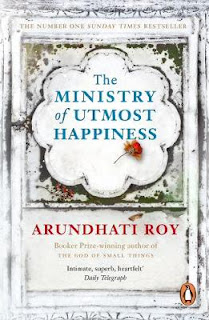One Night @ the Call Center is a novel written by Chetan Bhagat and first published in 2005. The novel revolves around a group of six call center employees working at the Connexions call center in Gurgaon, Haryana, India. It takes place during one night, during which all of the leading characters confront some aspect of themselves or their lives they would like to change. The story uses a literal deus ex machina, when the characters receive a phone call from God.
The book was the second best-selling novel from the award winning author after Five Point Someone.
(1) Globalization:
Chetan Bhagat has written that his “call-centre cousins, sisters-in-law and
friends” inspired his tale, “providing information, stealing various training
materials and arranging meetings” (317). But in One Night’s framing
story, a mysterious woman—who, as it turns out, is actually God in
disguise—furnishes Bhagat with this
information, chastising him for paying too little attention in his first novel
to “the biggest group of young people facing a challenge in modern India”
(14): the 300,000-strong men and women who work in the Indian call center industry. The author’s wording here is somewhat surprising; in
many ways this group would appear to be among the main beneficiaries of
globalization in India. After all, in a country where the majority of the
population makes less than two dollars a day (Murphy 429), their pay is
relatively high; and, as critics have pointed out, as English speakers many
of them could find other jobs outside the outsourcing industry quite easily.
Instead, in One Night they are depicted as the underdogs of the country’s
globalization story, their rights and dignity trampled upon by Americans.
The character Vroom compares his dehumanizing call-center work to
prostitution:
“Every night I come here and let people fuck me.”. . . [He] picked up the telephone
headset. “The Americans fuck me with this, in my ears hundreds of times a night . . .
And the funny thing is, I let them do it. For money, for security, I let it happen. Come
fuck me some more,” Vroom said and threw the headset on the table. (216)
The problem with the call-centre (and thus globalization), Bhagat
suggests, is that, as Vroom implies in this passage, it has resulted in a new
materialistic culture in India that mirrors American consumerism.
Relatedly, working at the call-centre is tantamount to a betrayal of the
nation-state and its anti-consumerist social idealist founders. This newly
materialistic culture and nationalist betrayal are linked closely to, and
perhaps even rendered possible by, the accent neutralization and renaming
practices of the call-centre, which undermine, erase, and distort a sense of
“authentic” Indian-ness.
(2) Cyberpunk:
Cyberpunk is a postmodern science fiction genre. Cyber Punk is connected with science and technology. It features higher science, such as information technology and cybernetics, coupled with a degree of breakdown or radical change in the social order. Cyberpunk plots often center on a conflict among hackers, artificial intelligences, and Mega Corporation, The characters deals with cyber technology. Vroom hacks Bakshi's email and writes email to Esha on his behalf. The American's are terrorized with the help of bug in MS Office as virus attack on Internet . In the world of technology heroes are hiker like Shyam. Machine is controlling human beings. Bakshi controlling heroes and other high teach and law life. Character dealing with Bug, FM radio, Email, Internet (computer). So we can say it classify as Cyber punk novel.
Impressionistic criticism:
For the first time when I read this book I felt that the Bhagat is writing about the young India and what problems are faced by the generation and specially Indian people. This book also reflects the problem of the call center and people working there. He has also tried to touch the basic problem people face in there daily life. In this book we can also see the love hate relation among the characters. I also felt shocked when writer brings in the God's call which catches the attraction. I have never thought that this book would also be having characteristics like self help book, nationalism, globalization etc.






